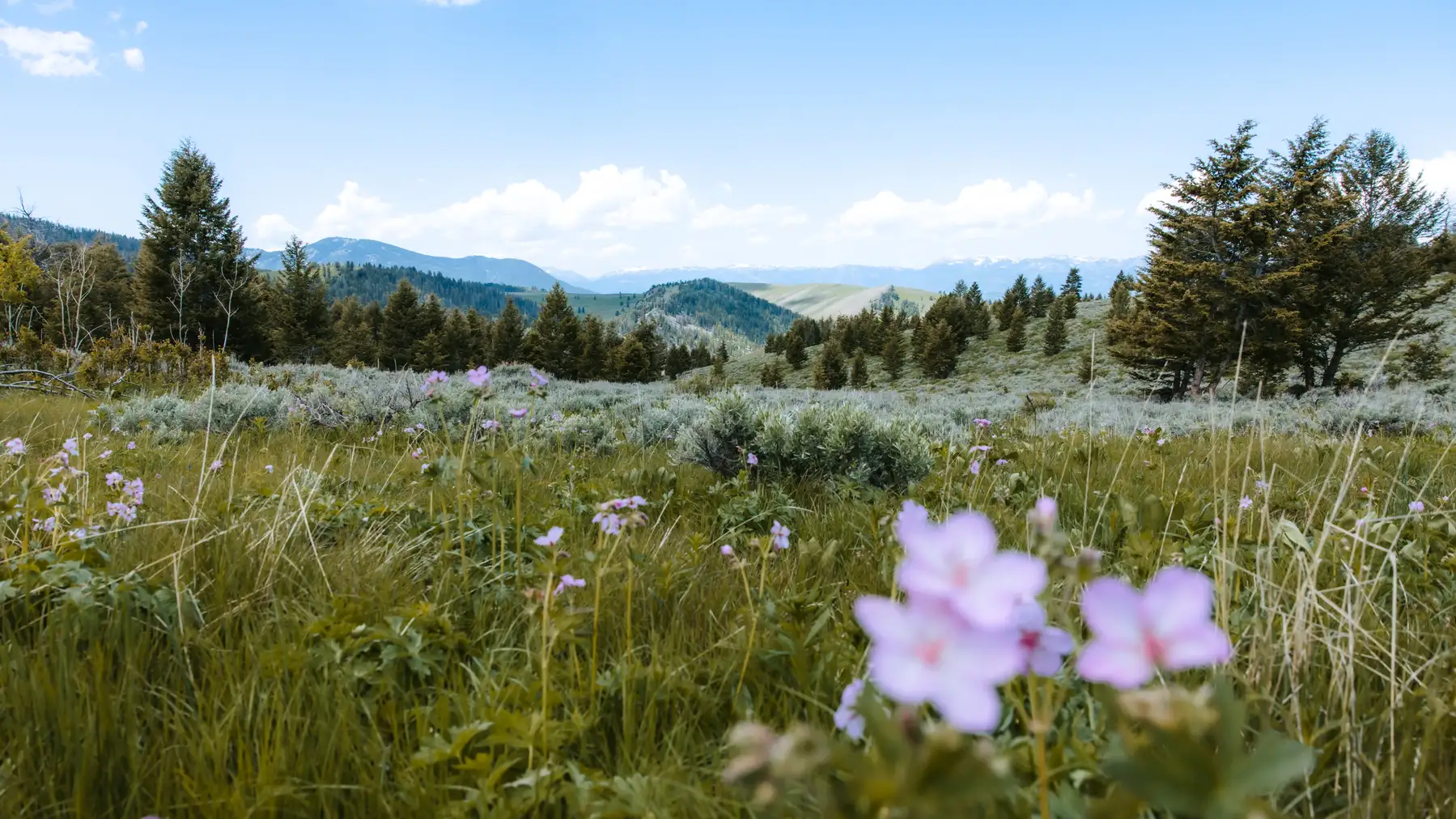October 1918
Cal has the place surveyed, all 141 acres of it. His aim is to make the ranch his homestead and thus gain title to own the land. The ranch is surrounded on all sides by the Teton National Forest.
2014
Owners Joe Albright and Marcia Kunstel retire from daily operations and Trey and Shelby Scharp take over as general managers. In their 11th year as managers, Trey and Shelby are excited to continue the tradition of Flat Creek Ranch and to share the beauty and wilderness with you.
2011
Flat Creek Ranch celebrates its tenth year as a dude ranch.
December 31, 2001
The U.S. Interior Department adds Flat Creek Ranch to the National Register of Historic Places, upon the recommendation of the Wyoming State Historic Preservation Review Board.
July 2001
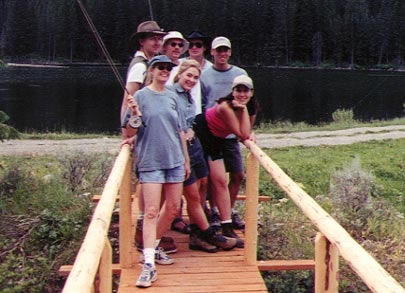
The renovation complete, the ranch fully reopens to guests.
Summer 2000
The Flat Creek Ranch romance between Cissy and Cal is celebrated in “Petticoat Rules,” a musical comedy that plays at Jackson’s Pink Garter Theater. The play is so successful that it is brought back for return engagements in 2001, 2009 and 2010.
1998
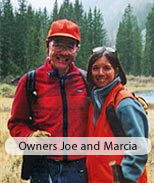
Joe Albright — son of Josephine and grandnephew of Cissy — buys back the ranch from the Land Trust following Josephine’s death. Joe and his wife Marcia Kunstel are so taken by the beauty of Flat Creek and friendliness of Jackson Hole that they move to Wyoming to fix up the ranch, which had fallen into disrepair. They find a conservation-minded contractor, Porgy McClelland, who recruits a crew willing to live part-time at the ranch during a lengthy renovation project. For the next three summers, there wouldn’t be much space for guests.
1986
To guarantee permanent protection, Josephine Albright donates Flat Creek Ranch to the Jackson Hole Land Trust. She puts a permanent conservation easement on the land and includes a proviso that her heirs will have first option to buy back the ranch at an appraised price following her death.
1981
Dick Cheney, then Wyoming’s congressman, is invited up to the ranch with his family to go fishing. His wife Lynne Cheney becomes so intrigued with the history of the ranch that she later publishes an article called “The Countess of Flat Creek” in the “Annals of Wyoming,” a scholarly periodical.
1948
Cissy dies, leaving the ranch to her niece Josephine Patterson Albright, who finds it too remote to use. For the next four decades, she leases it out to a succession of trout fishing devotees, keeping an eye on things from her own ranch in nearby Dubois, Wyoming.
1944
Farney Cole, Cissy’s longtime caretaker, is attacked by a large bear while he is walking near a beaver pond on the ranch. Farney is mauled but manages to pick up a log from the beaver dam and club the bear senseless. Bleeding, Farney staggers several miles down the hill to a neighbor’s cabin and survives. Farney’s exploits are celebrated in a full-page spread in a national newspaper supplement. The bear is never found, but a half-century later Farney’s famous club would adorn the wall of Dornan’s tavern in Moose, Wyoming.
1930s and 1940s
Caught up in the tumult of publishing the Washington Times-Herald, Cissy ends her long summers in Jackson. “The Countess’s Place” on Flat Creek is seldom seen by anyone except Cissy’s ranch hands.
About 1929
Cissy has a piano shipped from Chicago for Saturday night dances in the Lodge, where the piano is still in use. It is hauled up the road on an ox cart.
1928
The U.S. Forest Service cuts a rocky dirt road up along Flat Creek from Jackson — the same road we use today.
1923
Cissy directs the ranch to be expanded from Cal’s original cabin into her own private guest ranch of seven cabins, a barn and a lodge.
Winter of 1923-24
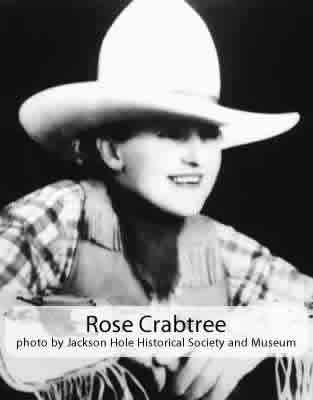
Cissy asks her closest friend in Jackson, Rose Crabtree, to keep an eye on her interests at Flat Creek while Cal is away during the winter. Rose, an innkeeper in Jackson, is one of the celebrated slate of a half-dozen tough-minded Jackson Hole women elected in the early 1920s to run the town.
November 20, 1922
Senator Warren writes to Cissy at the St. Regis Hotel in New York, saying “Carrington case has been approved for patent.”
February 1923
Cal sells Cissy the ranch for $5,000 (estimated to be about $63,000 at today’s prices, after adjusting for inflation). He would remain her close friend and hunting guide for some years.
December 1922
Carrington gets the homestead patent.
Summer 1922
The paperwork moves from desk to desk in the bureaucracy. A local forest ranger writes that he’s not against the homestead, even though Cal’s cultivation “has consisted almost entirely of harvesting wild hay.”
March 29, 1922
Senator Warren writes to Cissy that Cal’s Washington foray has gone well.
Late March 1922
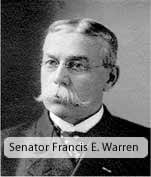
En route back home from Europe, Cal spends several days in Washington lobbying. He delivers Cissy’s letter to Senator Warren and visits the headquarters of the Forest Service.
March 10, 1922
While staying at Claridge’s Hotel in London, Cissy writes a letter of introduction for Cal to one of her Washington social acquaintances, the powerful Senator Francis E. Warren of Wyoming, who is chairman of the Senate Appropriations Committee. The letter asks Senator Warren to help Cal find his way through the Washington bureaucratic thicket so he can get Flat Creek Ranch as his homestead.
1920
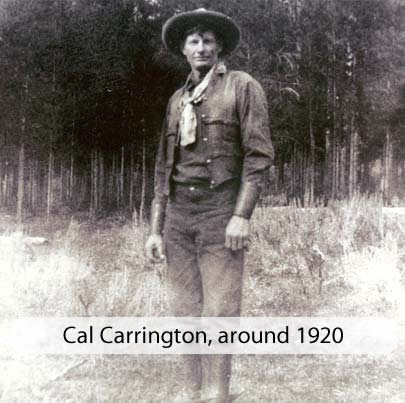
Cissy writes her first newspaper story celebrating the election victory an all-women slate of candidates in Jackson, which made Jackson among the first municipalities in America with an all-women government. By some accounts, it was Cissy who inspired the six Jackson women to run for office. Cissy’s article appeared in the Omaha World-Herald, which was not part of the Chicago Tribune’s empire.
March 3, 1920
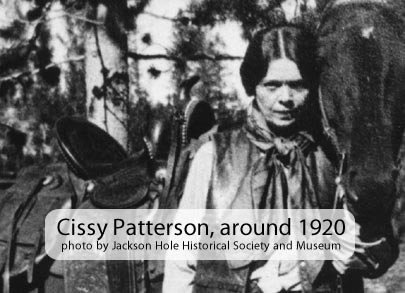
Cal officially establishes residence at the ranch and starts clearing stumps and cutting logs. Within two years he is running 25 cattle and horses.
Summer of 1918
Cissy returns to Jackson Hole, rents the White Grass Ranch, and hires Cal to be her ranch manager. One day Cal and Cissy ride up to see Cal’s secret place on upper Flat Creek. “Cissy thought it the most perfect place she had ever seen,” writes her biographer.
Summer and Fall of 1917
Cissy and Cal soon find themselves attracted to each other. Romantic evenings and long hunting trips ensue. Cissy is 38, Cal is 44.
Summer of 1917
A Chicago newspaper heiress and social celebrity, Eleanor “Cissy” Patterson, pulls into Jackson Hole on a horse-drawn wagon with her daughter Felicia and her French maid. An accomplished horsewoman and a big game hunter, Cissy settles in for a stay. Cissy is introduced as Countess Gizycka, a title she retains even though she is on the rebound from a disastrous marriage to philandering Russian count, Josef Gizycki. Her internationally publicized divorce from Gizycki is finalized a few months before her trip to Wyoming.
Around 1912
Cal goes to work as “head guide in charge of pack outfits” at the new Bar BC Ranch, which would become Jackson Hole’s most celebrated dude ranch. “I decided it was time to get respectable and go into dudin’,” he would allow.
About 1905
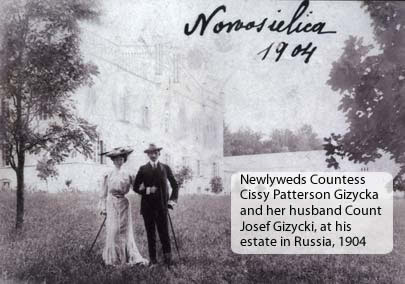
Despite his shady past, Cal gets on the federal payroll as an assistant forest ranger of the National Forest Service in Wyoming.
February 10, 1905
Cal goes into court in Idaho and becomes a naturalized American citizen with the name Enoch Carrington. He swears before a court clerk that “I have behaved as a man of good moral character.”
March 1901
Riding around Jackson, Cal finds a hidden valley just 15 miles above town that is populated only by moose, elk, mountain sheep and beavers. Tucked away on upper Flat Creek, it is the perfect spot for hiding rustled horses. “I could see the sheriff a’coming either way,” he would explain. He moved into an abandoned trapper’s cabin at what would become Flat Creek Ranch.
Around 1898
Now a lanky cowpoke, Cal rides into Jackson Hole for the first time.
1890
Wyoming becomes a state.
1889
Cal can’t stand his Idaho foster father. “When I was sixteen, and big enough, I beat the hell out of the sonovabitch and ran away,” Cal once said.
1878
At the age of five, Cal enters the United States, apparently in the custody of Swedish Mormon Missionaries bound for Utah
1873
The man who would homestead the Flat Creek Ranch, Cal Carrington, is born in Sweden. By some accounts, his birth name is Enoch Kavington Julin, and his parents are a shoemaker and his wife.

